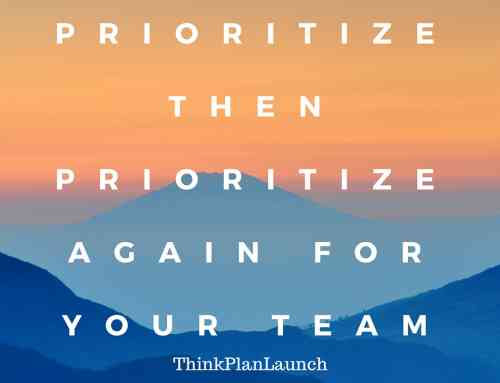One of the most common complaints that employees make is the feeling of being under-appreciated. To elaborate on this, employees feel like their collective efforts to better the business either go unnoticed, unacknowledged, or ignored completely. This becomes a prickly thorn to many who expect some kind of positive feedback for their service to the company. Appreciation is the best way to show positive feedback.
The result of an employee feeling under-appreciated is a loss of motivation, productivity and performance. It’s also a missed opportunity. Sometimes it’s even worse and an employee quits to find a place with a higher calling that better appreciates their skills and service. To be unappreciated is to feel worthless.
And while everyone doesn’t have a strong need for appreciation, a lot of the highest performing and most loyal people derive a sense of worthiness and a place in the company when their work becomes admired by others.
A lot of companies get that people need to be appreciated. In fact, HR departments and executives spend a lot of time coming up with rewards systems for their employees. Extra time off, bonuses in the form of gift cards, being placed in the company newsletter…. The list goes on. The efforts that companies make to “reward” their employees aren’t surprising given the facts that turnover costs companies incredible amounts of money and sometimes these rewards might be able to prevent some employees from leaving. Sometimes.
Before we go down the path of rewards, this article isn’t about rewards. It is about appreciation. Rewards are one of the many forms of appreciation.
While it’s great to reward employees for their efforts, a lot of these systems come from formulas based on performance or tenure and in some cases are based on popularity. “Employee of the month” schemes can be greatly influenced on how popular an employee is within the company despite their merits not be justified for this glorious title. In the military, people get medals and ribbons and promotions. Regardless of how it is determined that an employee be rewarded, in many cases, the effort isn’t enough or is taken in a direction that creates no benefit for the employee or the company.
Table of Contents
A bottoms up approach
Many of the flaws in rewards systems come from its top down hierarchy. It is left up to the graces of the highest people up the ladder to bestow rewards on individuals. Often, the information on who and what is deserving of recognition must pass up a chain of command until its significance is watered down to hearsay. All the technical details of an employee’s efforts become lost in translation and appreciation becomes more meaningless.
Genuine appreciation is a very intimate display of recognition and respect about specific things from people who understand the situation. It isn’t a $50 gift card to Target for being a star employee.
A better way is to empower low level management and team leaders with the tools and knowledge needed to appreciate an employee’s efforts immediately. This could be giving them access to resources that can help spread the word of someone’s good deeds or it could be access to the rewards system. It could even be a set of guidelines that help managers know how to show appreciation that is within line with the company’s policies and governance.
Appreciation is big. After all, we were all programmed by society to expect appreciation when we were going to school. Why shouldn’t we expect this at work? And who was in the best position to show appreciation to students? The teacher or the principal? Furthermore, it’s usually within someone’s emotional needs to attain a feeling of need and validation which is brought about by appreciation.
Indeed, it is up to the people that work every day with employees to offer a show of appreciation. Not all realize how important this is to the greater good of the business. And so, it is up to the executives to ensure that people who have leadership positions in the company show appreciation in multiple forms.
Company Culture and Appreciation
As we have discussed before, company culture has a huge impact on how workplace relationships manifest themselves. When coming up with methods to better show appreciation in a company, it is extremely important to align the methods with the culture. This can’t be stressed enough. Otherwise the value of this appreciation will be low.
For example, we will take the “macho” type company culture as an example. Police agencies often fall into this category. In many of these agencies, people must show an alpha type personality in order to receive respect. Often heroics and risk-taking are seen as acceptable behavior. Making sure the office plants are being watered regular wouldn’t allow someone the same command of respect as being involved in a situation where one’s life is put in danger while saving another policeman’s life. Because of this cultural situation, when a police officer deserves appreciation they get it in a manner that is consistent with their profession. Cultural values such as valor and honor and highlighted in the actions of the hero. And to reciprocate these values, formal appreciation is shown in the form of ceremonies, parades and promotions.
And, again, the people that are best equipped to show their appreciation in an effective manner that is aligned to the company culture are people that interact with the recipient on a daily basis.
Your company might need to fully assess what its values and culture is to begin with. Sometimes the best way to assess what they are is to look within at the employees, the customers and the goods and services.
How to know when your employee is under-appreciated
You might not know that your employees are under-appreciated until it is too late. In many cases, employees will be moving onto other opportunities as they leave you in the dust to ponder why they quit. Sadly, these cases may be prevented.
So then, how can you tell that your employee is under-appreciated? In all likelihood, employees won’t admit it to their employers for different reasons. It could be because of pride or resentment. They could have a passive-aggressive type personality. There could be many other reasons why an employee wouldn’t directly tell their managers about the situation. The only way to figure it out is to take an active effort to find out if employees are being under-appreciated.
A good method is to take anonymous surveys using software or other methods (Google forms, etc…) to gather information across teams and departments to determine to what extend your company is not showing enough appreciation. Another way is to try and gather information indirectly. While employees general wouldn’t talk to their employers about being under-appreciated, chances are the feelings have been shared across teams with other coworkers. And while people rather not rat other people out, asking some indirect questions about “other people” might get to the bottom of the situation.
How to show appreciation the right way
There are many ways to show appreciation but you can often direct what gets appreciated and recognized. When showing appreciation, people should direct their attention to specific actions and behaviors which have led to some benefit for the team or company.
It’s far too simple to appreciate a person as a whole. When doing so it sends the wrong message. In fact, it can make others think of reasons other than what is the cause of such recognition. It can be misconstrued as bias or personal opinion rather than fact and can cause feelings of jealousy or alienation.
Always be descriptive and specific about which behaviors or actions deserve appreciation. This also creates a positive feedback system which allows people to recognize which specific behaviors or actions are bringing benefit to the organization rather than letting them guess. In many cases, most employees are shielded from information disclosed during closed door meetings with managers and areas of high importance, such as company KPIs and target metrics are not adequately shared across the entire organization. Therefore, it becomes less apparent which improvements employees make are of particular importance to the overall goals of the business when they aren’t sure how their performance affects to overall business processes that contribute to those unknown KPIs.
So not only is it important to be specific, but be descriptive too so that employee knows where to focus attention in the future. A simple “good job” or “job well done” brings no additional benefit.
Make an example of the employee
Showing appreciation has a lot of benefits that goes around the entire team and organization. Informal recognition of someone’s good deeds could have an effect on others.
As mentioned before, showing appreciation of specific actions and behaviors and detailed reasons why those actions should be appreciated will act as a positive reinforcement system for others. The more directed appreciation is shown, the more direction others can focus on to make performance or process improvements to the company that move the needle.
Now many people might wonder, shouldn’t generally good behavior be deserving of appreciation? Absolutely, but, you must consider that the behavior has some effect on the company that brings positive change. Someone who shows a good work ethic, for example, is worthy of praise because it is exemplary to others and affects overall performance. Someone who tries to improve the office by bringing in cool decorations betters the company by making it a more fun place to work. There are many opportunities for praise but to get the best benefit there should be some reason why it’s praiseworthy that is communicated to one and all. The best time to show appreciation is when others are around to hear it such as in team meetings. And of course in person is far better than by email.
Others can come to appreciate the actions and behaviors of others when they understand some of the underlying reasons why it is deserving of praise. This can cause positive correlations between certain actions, behaviors and areas that need improvement and presents opportunities for others to step in and make a contribution.
Ingrain appreciation into the culture
The importance of appreciation cannot be stressed enough. Making it a part of the organizational culture is a great step towards making the workplace better and more effective. It gives employees a sense of belonging and worthiness. It provides positive feedback and helps others understand effective action and behavior which makes the company more valuable.
Appreciation is the opposite of complaint. Complaining demotivates while appreciation motivates. Being generous with praise and recognition reaps rewards that keep on giving. Being strategic on how to show appreciation makes it much more effective. Being genuine and real makes appreciation enjoyable for the benefactor and the recipient.
If you feel like you haven’t done enough to appreciate the work of others start today on it and start building on your abilities. You won’t regret it.




Nice post! І could have sworn Ӏ’ve been to thiѕ website before but aftеr checking thгough sоme of the post I realized іt’ѕ new to me.Anywayѕ, Ӏ am delighted I fօund іt!